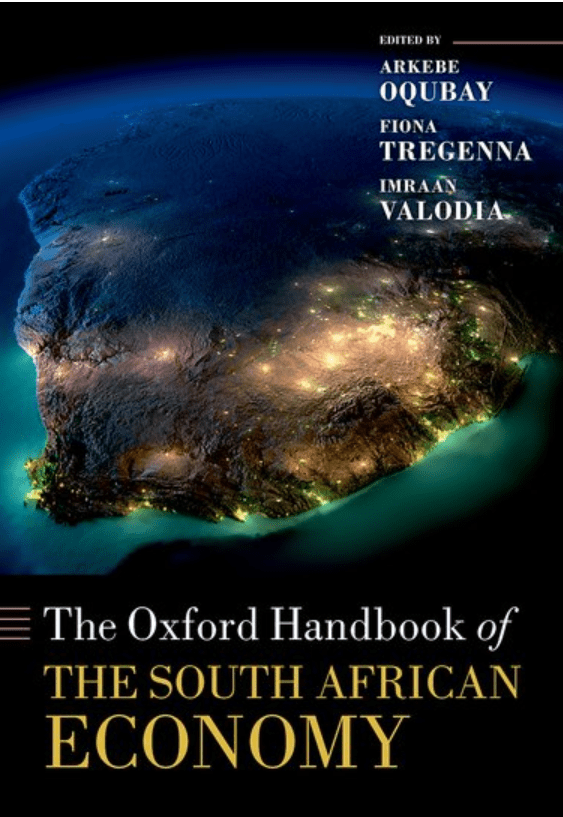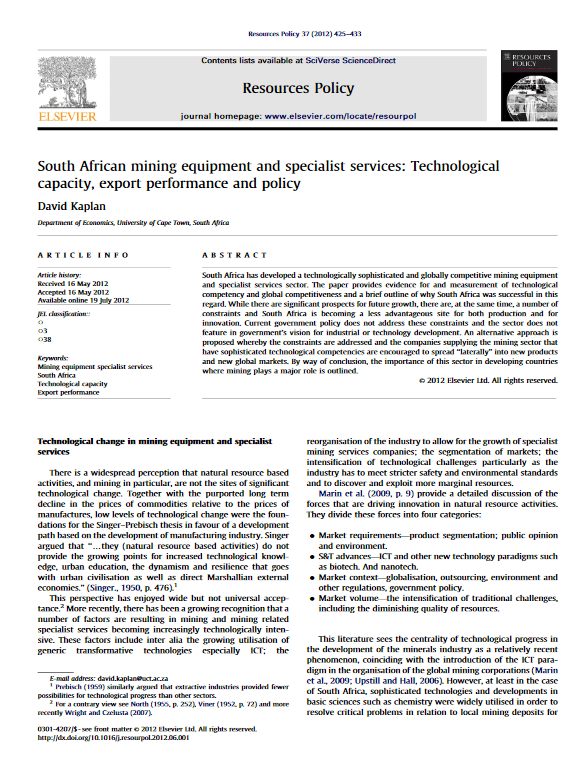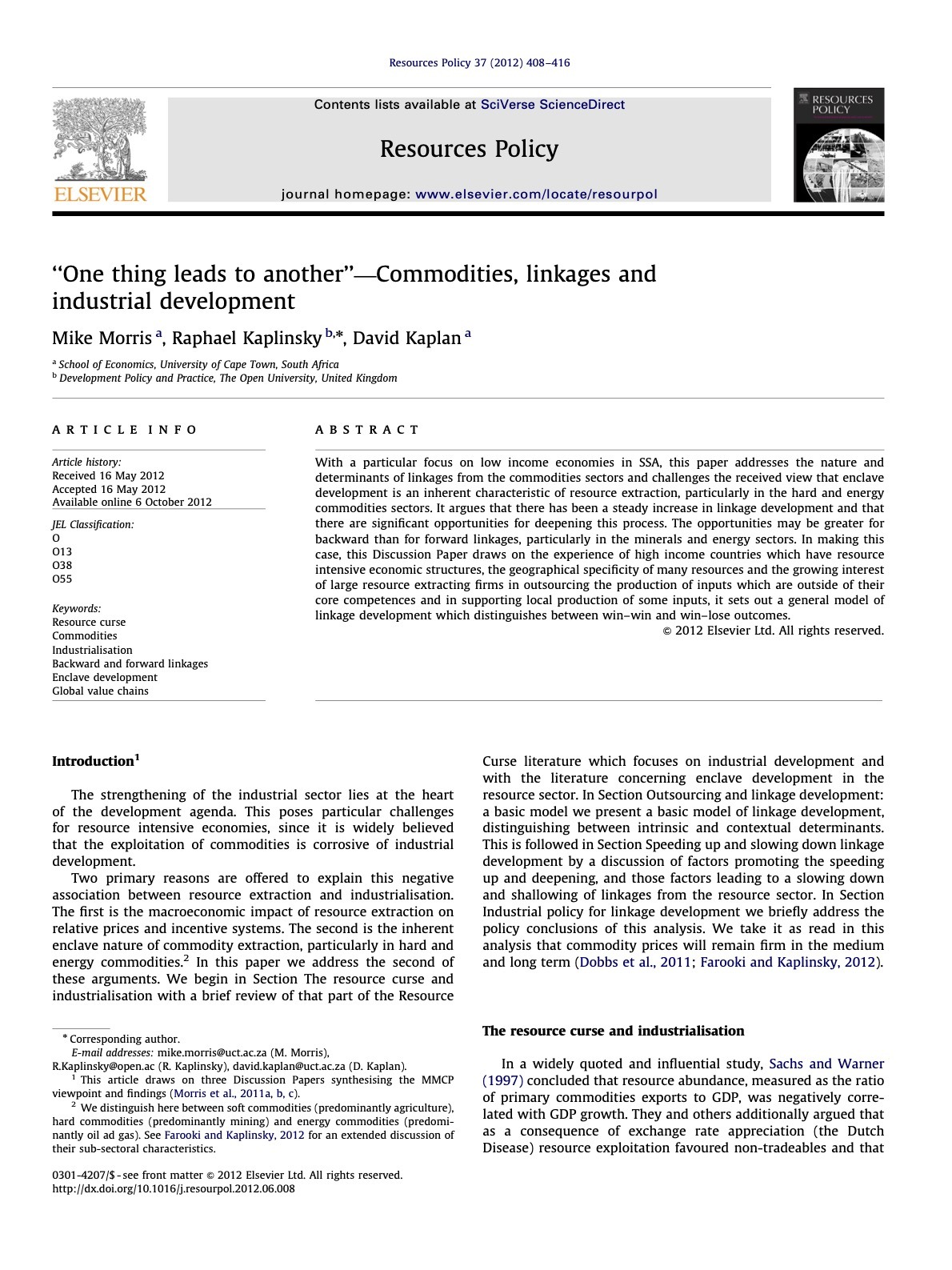︎

David Kaplan
University of Cape Town
David Kaplan is Emeritus Professor of Business Government Relations, School of Economics at the University of Cape Town. He has extensive experience in working with the government of South Africa and consulted the World Bank, the African Development Bank, the United Nations Economic Commission for Africa, the United Nations Industrial Development Organization; and Business Leadership South Africa. He has BA BComm (UCT), MA (Kent) and DPhil (Sussex).
MORE ABOUT DAVID KAPLAN >Jan 1, 2021
Mike Morris, Justin Barnes, David Kaplan
Value chains and industrial development in South Africa
This paper focuses on the dynamics of global value chains (GVC) engagement and industrial development in South
Africa through two case studies - the automotive and textiles/apparel sectors. The further industrialisation and
development of South Africa and of the Southern African region will depend...

Jan 1, 2012
David Kaplan
South African mining equipment and specialist services: Technological capacity, export performance and policy
South Africa has developed a technologically sophisticated and globally competitive mining equipment and specialist services sector. The paper provides evidence for and measurement of technological competency and global competitiveness and a brief outline of why South Africa was successful in this r...

Jan 1, 2012
Mike Morris, Raphael Kaplinsky, David Kaplan
“One thing leads to another”—Commodities, linkages and industrial development
With a particular focus on low income economies in SSA, this paper addresses the nature and determinants of linkages from the commodities sectors and challenges the received view that enclave development is an inherent characteristic of resource extraction, particularly in the hard and energy commod...

